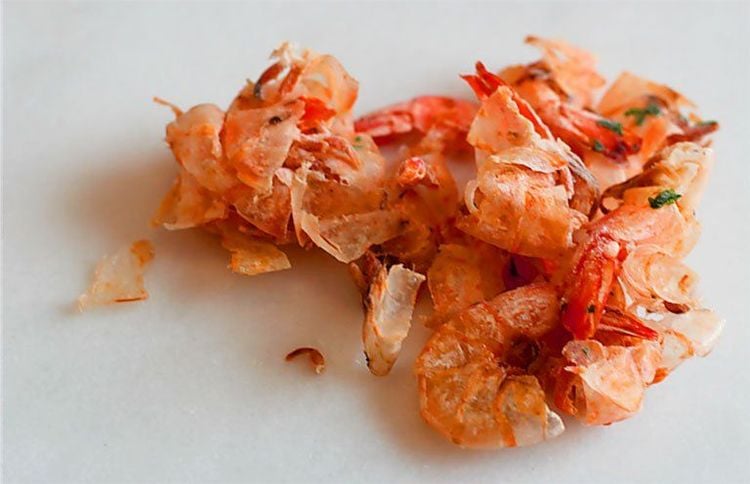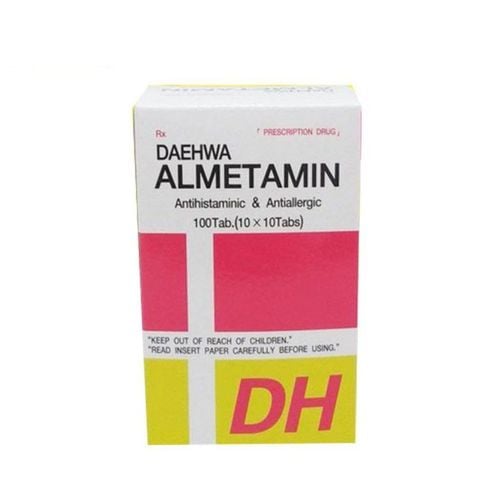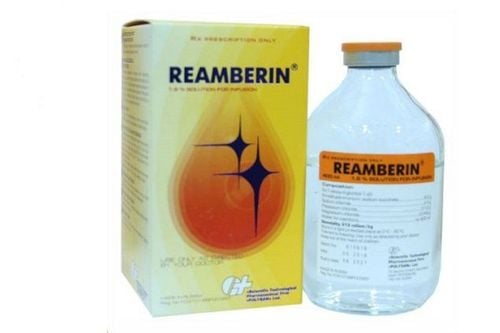Shrimp shells are a rich source of lean protein, healthy fats and minerals but are often overlooked. Regularly eating shrimp with shells can enhance immunity, support weight loss, and boost brain and heart health. However, these shells can cause allergies and contain some heavy metals. Therefore, caution is needed when preparing and consuming them.
1. Benefits of shrimp and other shellfish
Below are some benefits of shellfish that you should know:
1.1. Weight loss support
Shellfish are low in calories but high in lean protein and healthy fats, making them excellent foods for a diet.
High-protein foods help you feel fuller for longer, reducing excessive calorie intake. As a result, they aid in weight loss and weight maintenance. A study in overweight adults found that those who consumed more omega-3 fatty acids in their calorie-restricted diet felt significantly fuller after meals compared to those with less omega-3 intake under the same dietary conditions.
1.2. Promoting cardiovascular (circulatory) health
Shellfish are rich in nutrients that can enhance cardiovascular health, including omega-3 fatty acids and vitamin B12. Some studies have linked the consumption of omega-3 fatty acids from fish and shellfish such as shrimp to a reduced risk of heart disease due to their anti-inflammatory effects.
Moreover, inadequate vitamin B12 intake is associated with high homocysteine levels in the blood, which increases the risk of heart disease. Therefore, consuming foods rich in vitamin B12 may help protect against heart disease.
1.3. Beneficial for brain health
The nutrients in shrimp are not only good for the heart but also essential for brain health. In fact, some studies have identified insufficient blood levels of vitamin B12 and omega-3 as risk factors for impaired brain development in children and suboptimal brain function in adults.
1.4. Rich in immune-boosting nutrients
Some types of shellfish are high in immune-boosting zinc. This mineral is necessary for the development of cells that make up the body's immune defense system.
Therefore, regularly consuming shellfish such as oysters, clams, mussels, lobsters, and crabs… can improve zinc status and overall immune function.

2. What are the effects of shrimp shells?
It is evident that consuming shrimp offers numerous health benefits. However, shrimp shells are generally not recommended for consumption. There are many misconceptions about shrimp shells being high in calcium. Some people wonder if shrimp and crab shells contain calcium.
According to experts, shrimp shells have little to no calcium. Most of the calcium in shrimp is found in the flesh. The hardness of shrimp shells comes from chitin, a polymer that gives the outer shells of certain animals their rigidity.
Additionally, consuming too many shrimp shells can cause allergic reactions or food poisoning. Some signs of allergy include:
- Vomiting and diarrhea
- Stomach pain and cramps
- Swelling of the throat, tongue or lips
- Hives
- Difficulty breathing
In some cases, individuals allergic to shrimp shells may experience life-threatening anaphylactic shock, requiring immediate treatment.
Therefore, to the question: "Do shrimp shells contain calcium?", the answer is no. Additionally, you should avoid eating certain parts of shrimp such as the head and the black line on the back. This is because:
- The head is the part that contains the animal's waste. This part is rich in heavy metals that can be harmful to human health, especially for pregnant women and young children. Toxins from heavy metals like arsenic can cause birth defects in fetuses or miscarriage, as well as food poisoning.
- The black line on the back of the shrimp is its digestive tract. While not harmful to health, for better food hygiene, it is recommended to remove this line when preparing and consuming shrimp.
In conclusion, shrimp is a healthy food, rich in lean protein, healthy fats, calcium, and micronutrients. However, shrimp shells do not contain much calcium and may pose health risks. Therefore, you should avoid eating shrimp shells and be cautious about unfounded information such as shrimp shells being high in calcium…
To arrange an appointment, please call HOTLINE or make your reservation directly HERE. You may also download the MyVinmec app to schedule appointments faster and manage your reservations more conveniently.
Reference source: healthline.com













